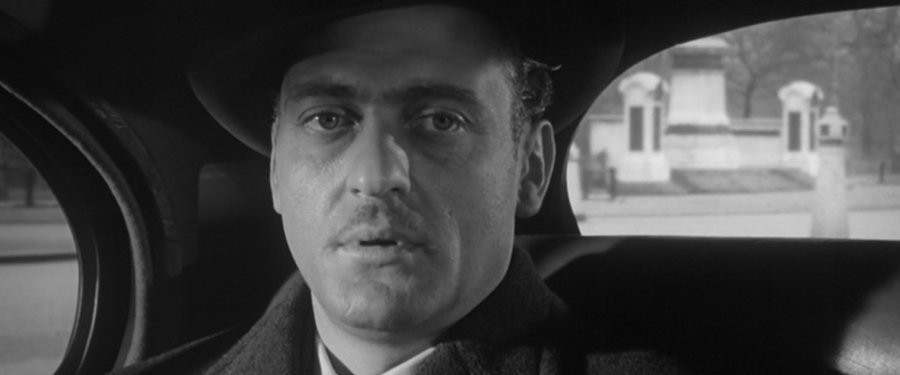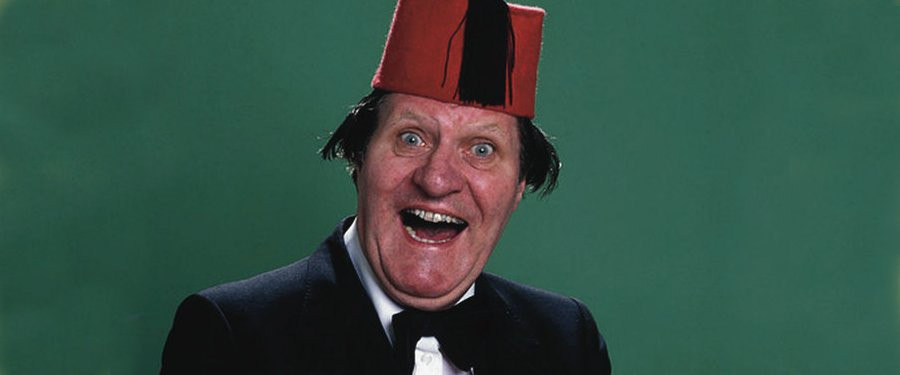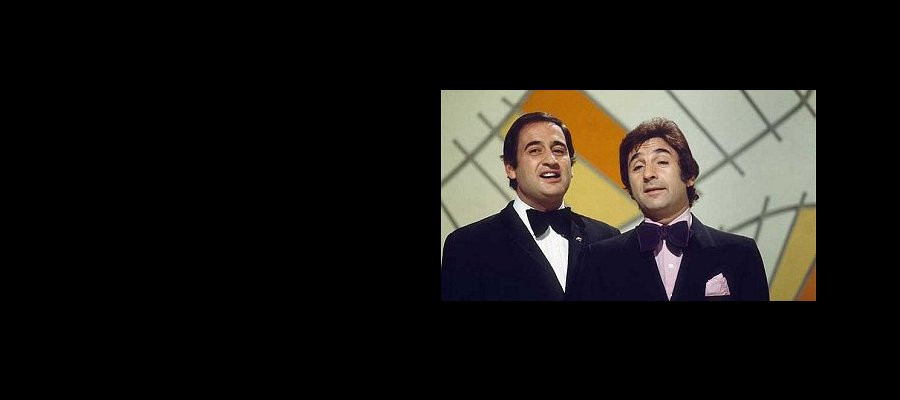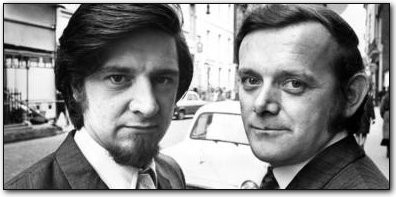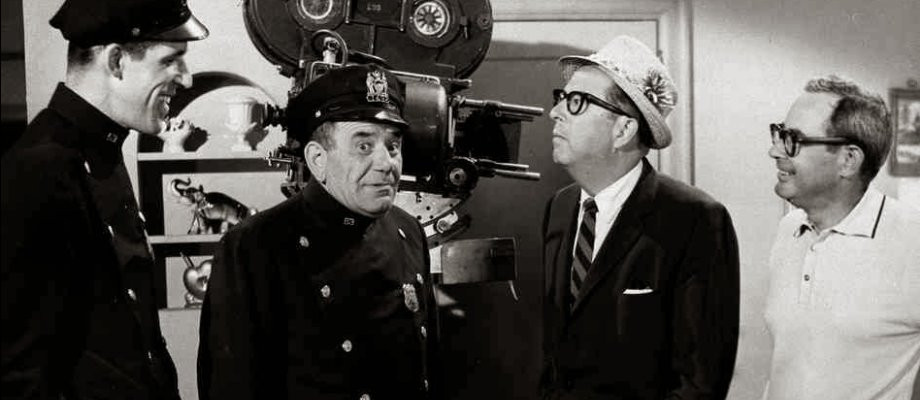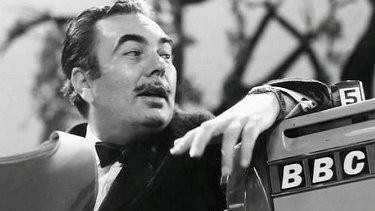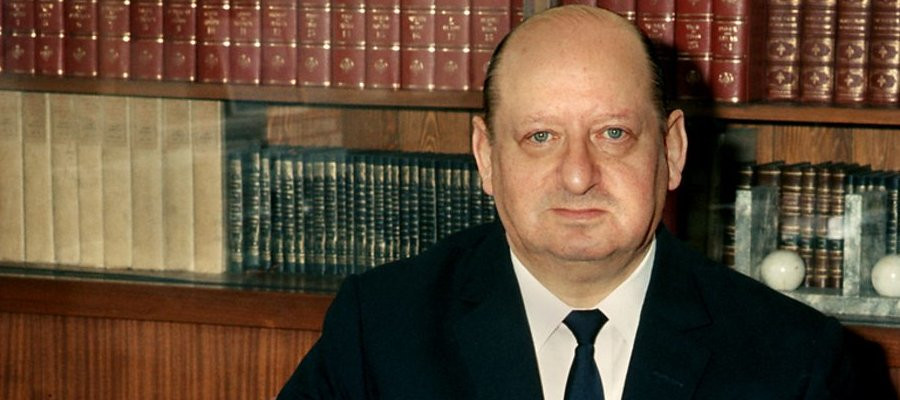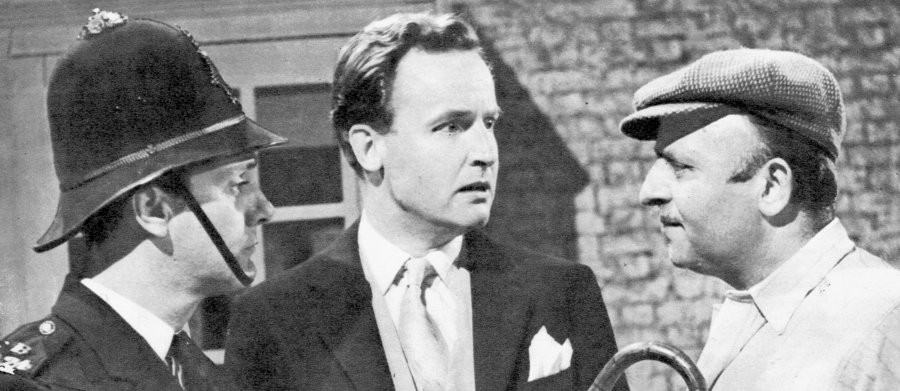
Nicholas Parsons
Biography: Brian Slade
When Nicholas Parsons passed away at the ripe old age of 96, most people will have remembered him for two things – his hosting of the phenomenal hit radio show Just a Minute, and for his venture into television game show hosting on Sale of the Century. What people tend to forget is that within his remarkably long career, Parsons was also one half of a hugely successful comedy double act and had held down an extended run in West End theatre. Couple that with a recurring one-man show at the Edinburgh Fringe and his was an enviable record that kept going right through to his final year.
Born in 1923 in Grantham, Lincolnshire, Parsons credited a travelling circus marching through town when he was just four years old as giving him his first inkling of wanting to perform. He attended St Pauls School in Hampstead when his doctor father moved his practice to London, but he was determined to become an entertainer.
As with many of his eventual contemporaries, Parsons’ family were less than convinced of the practicalities of a career in the entertainment industry. Engineering seemed a more conventional, and in their eyes, profitable vocation and so Nicholas set about learning a trade as he was sent away on an apprenticeship in a pump and turbine firm. At 16 years old and surrounded by colourful Glaswegian characters, young Parsons found his abilities at mimicry came in very handy to stay afloat.
Although initially forced to only perform around his daytime engineering work, understudying as he was at Molly Urquhart’s theatre in Rutherglen, Glasgow, Parsons eventually turned to full time acting once the Second World War was over. He took to the stage for the first time in Kiwi at the Aldwych Theatre and followed with a variety of rep tours until settling into a spell at the notorious Windmill Theatre in London.
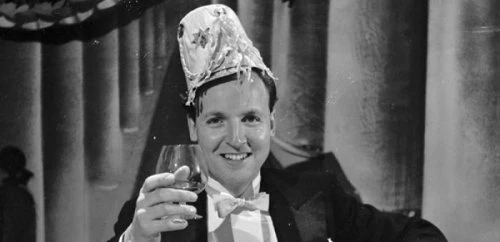
Nicholas Parsons had been among the viewers when the first episode of Strike a New Notewas aired on television in 1956. It was supposed to be a showcase of new variety talent, but the watching Parsons thought it was awful, bar the performance of Arthur Haynes. However, Parsons was delighted to accept a role on the show when he was invited to appear after a few episodes. The material was still weak though and the axe swiftly followed for all the performers, bar Parsons and Haynes. The programme improved, now under the title of Get Happy. Among the writers for the show was Johnny Speight, later to pen the acid-tongued Alf Garnett, and with Speight on board and Parsons and Haynes working well together, The Arthur Haynes Show was born.
Parsons and Haynes were never credited as a double act in as much as their appearances were always on The Arthur Haynes Show with Nicholas only credited in the cast. However, their performances were very much the definition of a double act. Hayes was there as the funny man, Parsons as the straight man. It was conventional double act through and through. Haynes openly admitted that he was the one who would get the funny lines, but he was also the one less concerned with rehearsals and scripts. It was Nicholas Parsons who found himself taking the more professional approach of getting his lines right, staying in character and feeding the comic. It was also he who had the job of holding the show’s sketches from drifting away from their intended route, given that Haynes would happily adlib and the programmes went out live.
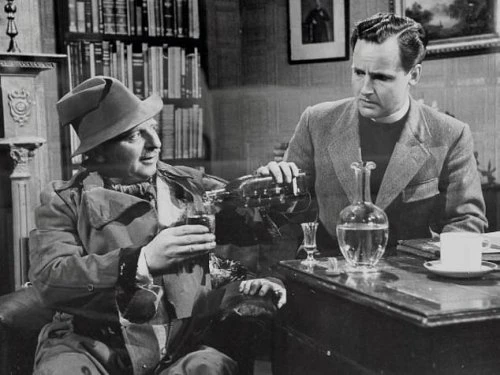
Their partnership may not have been credited as an act in its own right, but they were undoubtedly a success as one. Parsons would invariably play what would be deemed an upper class character – tailor, businessman, policeman, vicar – while Haynes would usually be the ordinary working man. This was the 1950s, with class very much still apparent. The Arthur Haynes Show would run across ten years and would have continued further had the fates allowed. After a successful appearance in the USA on The Ed Sullivan Show, Haynes surprisingly decided to let Parsons go. To his credit, Nicholas deemed that the split was perfectly amicable and they had hoped to work again. Sadly The Arthur Haynes Show would soon be lost as Haynes died from a heart attack in 1966, at just 52 years old.
For Nicholas, the departure from the act that had made him so famous allowed him to spread his wings. The stage was calling and as with most other things he turned his hand to, Parsons triumphed in style. In 1965 he headlined the cast of Boeing-Boeing, taking over the role of Robert from Leslie Phillips, which saw him make a triumphant return to the West End at the Dulwich Theatre for a 15-month run.
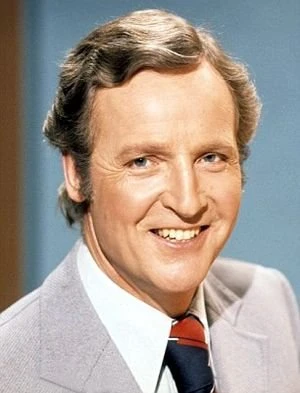
The late 1960s were halcyon days for Nicholas. After leaving the cast of Boeing-Boeing he went straight into the Brian Rix farce, Uproar in the House. Here he took another starring role, alongside Joan Sims, Peter Butterworth and later in its run, Eunice Gayson. Of the Whitehall Theatre production, critics were wowed, with a review in The Times salivating that, ‘If the basic method of farce is to make you accept the impossible by wrapping it up in fast and preposterous action, then this must be a masterpiece of packaging.’
Parsons left Uproar in the House in the summer of 1968, but by then he would have found a new home for his talents that would stay with him for the rest of his life. The radio show Just a Minute was a parlour game created by Ian Messiter in which players had to speak on a given subject for a minute without hesitation, repetition or deviation. Nicholas wanted to be on the panel, but was persuaded to host in the pilot episode, an episode that Parsons himself said, ‘…was a disaster. The only thing they liked was my chairmanship.’ The format was altered and the show became more and more successful and Parsons would not miss a single recording until a fall forced him to miss two programmes in 2018.
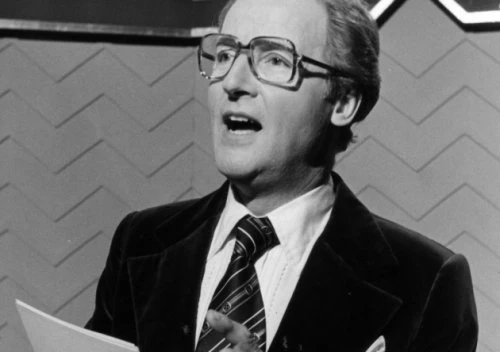
During that time, Parsons’ stage and screen work took a back seat, but then in 1971 he was given the opportunity to present a new quiz programme on Anglian television. Sale of the Century, which carried the subtitle ‘Quiz of the Week’ was an instant success and it was gradually rolled out to other ITV regions, eventually reaching the whole nation by 1975. It was a basic format – three people answered questions for cash and at various intervals, a showcase product was offered to them at a discount of high street prices in excess of 90%. It did offer the opportunity for people leaving the show early on to leave with some significant prizes if they chose to cash in their winnings early on.
Sale of the Century may not have been the most innovative of shows, but it gained a certain notoriety for its format and by the time it wrapped up in 1983, Parsons had hosted more than 400 editions.
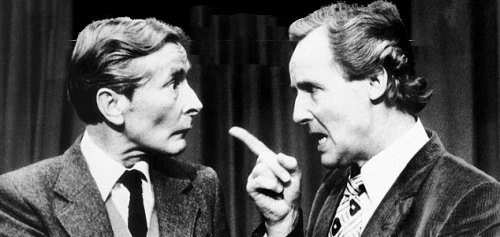
Meantime, Just a Minutewas going from strength to strength and while panellists came and went, Parsons became indispensable, not least because he could deal with the theatrics and hysterics of regular contestant Kenneth Williams. Williams had known Parsons since the 1940s, but was every bit as outrageous and contradictory with Parsons as he was with almost anybody else in the business, referring to the host as ‘that idiot Parsons’ but equally doffing his hat to Nicholas for helping him through the early programmes. They would do battle on many occasions until Williams’ death in 1987, but Parsons kept him in his place admirably.
A number of attempts were made to transfer the success of Just a Minute to the small screen. Pilot versions were filmed and never aired in the 1960s and 1970s, but it wasn’t until 1994 that a whole series was commissioned and screened. Tony Slattery became the resident panellist while a number of the radio show’s regulars, including seasoned campaigners Clement Freud and Derek Nimmo, also made an appearance. The show was genuinely funny, while they added an extra round in which contestants were given a mystery object to talk about instead of a topic. Format changes were introduced for another series, most notable as it became a team game with Slattery going up against a team headed by Dale Winton. Sadly, the format change didn’t persuade producers to continue with further series.
Having failed to achieve a consistent success on commercial television, Just a Minute was switched to the BBC in 1999 and then again for a period in 2012. With limited runs, it’s safe to say that television never quite harnessed the hysterical joy found in the radio editions, but they nonetheless represent hugely enjoyable forays onto the small screen, and even though Parsons was in his late 80s by the time of the last transfer attempt, he was simply irreplaceable.
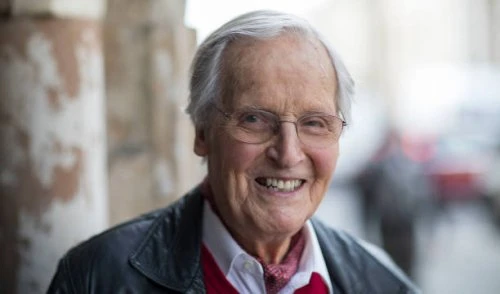
As he aged, Parsons relaunched himself with a one man show at the Edinburgh Fringe in 2001, so bringing him to a new audience, and he continued to perform there annually until health eventually took its toll. At 96 years old, Nicholas Parsons passed away in 2020. The longevity of his career is largely unrivalled, but perhaps it’s why people tend to forget how it all started, with his excellent comedic acting talents with Arthur Haynes. But without doubt, when he passed away, the outpouring of sympathy was understandably done so without hesitation, but a great deal of repetition.
About Brian Slade
Born and raised in Dorset, Brian Slade turned his back on a twenty-five-year career in IT in order to satisfy his writing passions. After success with magazine articles and smaller biographical pieces, he published his first full-length work, `Simon Cadell: The Authorised Biography'.
Brian is a devoted fan of the comedy
stars of yesteryear, citing Eric Morecambe, Ken Dodd, Harpo Marx and Dudley
Moore amongst his personal favourites. He was drawn to the story of Simon
Cadell through not only `Hi-de-hi!' but also `Life Without George', a programme he identified with having grown up in the
Thatcher era.
Published on February 16th, 2020. Written by Brian Slade for Television Heaven.


